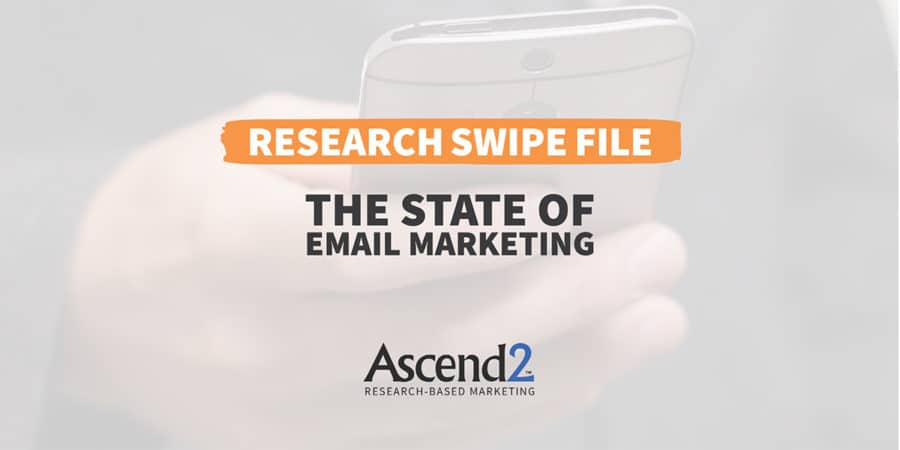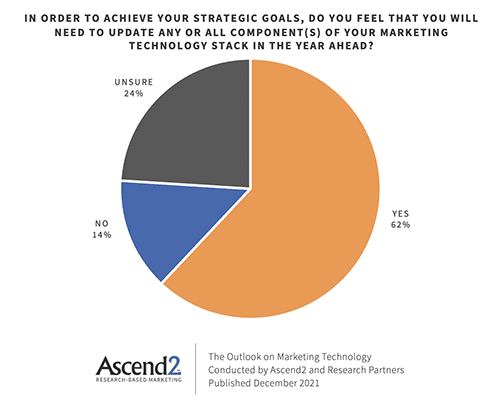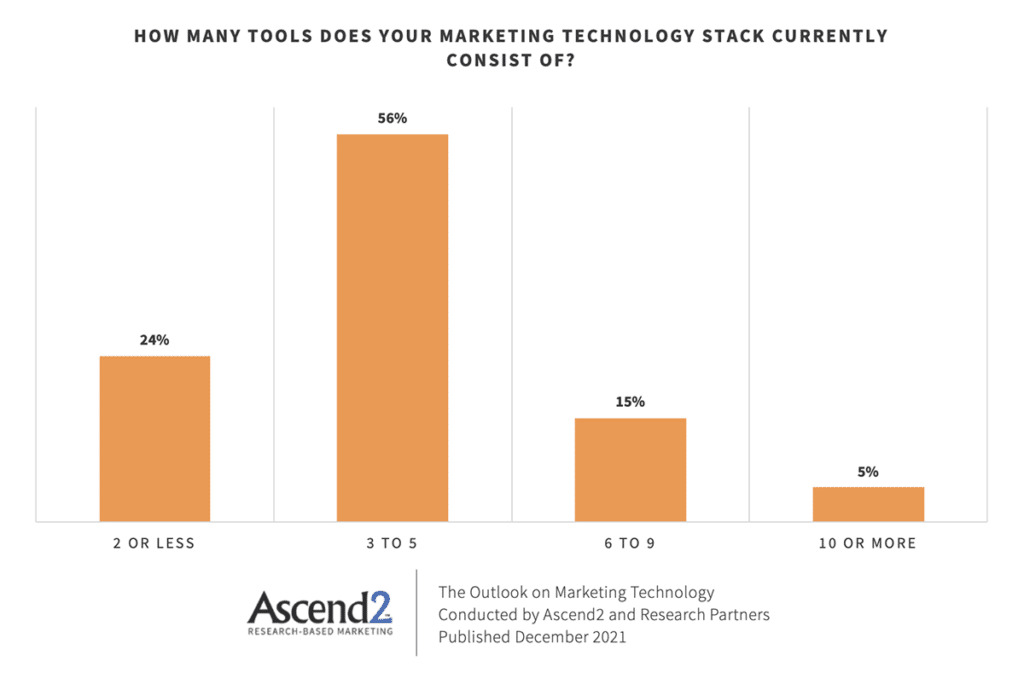Marketers are tasked with accommodating the rapidly changing priorities of their organizations and customers through marketing technologies and solutions.
But what will this evolving landscape of marketing technology look like in the year ahead?
To help answer this question, Ascend2 and our Research Partners fielded The Outlook on Marketing Technology survey. We thank the 302 marketers who responded to this survey between November 15, 2021 and November 22, 2021.
Research highlights:
- Refreshing the tech stack... Nearly two-thirds of marketers report that they will need to update components of their tech stack in the year ahead in order to meet strategic goals.
- Collecting first-party data is a must. 90% of marketers say that the collection, analysis and use of first-party data will be critical to the success of their marketing strategies in the year ahead.
- The adoption of AI: 45% of marketers will be using AI in their email marketing, and over one-third will be using it to improve their analytics and reporting next year.
Gauging strategic success
Marketing technology is helping marketers achieve their strategic goals but there is room for improvement in the majority of tech stacks. While 22% of marketers describe the success of their martech stack as “best-in-class” compared to their competitors, nearly three-quarters (72%) of those surveyed report just some success from their technology.
Important goals in the year ahead
Marketers are tasked with efficiently delivering meaningful customer experiences that promote
engagement and loyalty. In the coming year, marketers are seeking to drive better customer experiences
(54%) and increased engagement (47%) through their marketing technology, while 45% report that
improving efficiency will be a top priority.
Updating technology
In order to meet or exceed their strategic goals, nearly two-thirds (62%) of marketers report that they will have to update some or all components of their marketing technology stack in the year ahead. The rapidly changing landscape of consumer tastes and organizational needs makes it critical for marketers to continuously evaluate and optimize existing solutions.
Budget Dedicated to MarTech
Nearly one-quarter of marketing professionals report that more than 20% of their overall marketing
budget will be dedicated to martech platforms, training and/or management in the year ahead. Half of
those surveyed report martech budget allocations between 10% and 20% of their marketing budgets and for about one-quarter of marketers, less than 10% will go to their technology solutions.
Number of tools utilized
In the past years, marketing teams have worked to reduce data silos and improve efficiencies. Often this means consolidating technology solutions and running lean tech stacks. Nearly one-quarter (24%) of those surveyed report that their current martech stack consists of two or fewer tools. A 56% majority say that three to five tools make up their suite of marketing technology solutions and tools.
Current functions of the tech stack
What types of functionality do current marketing technology stacks include? Customer-centric solutions to execute external campaigns such as email and social media tools are present for nearly two-thirds (64%) of marketers and 54% of marketers, respectively. But many highly-represented tools focus on improving organizational efficiencies such as communication solutions (62%), collaboration or meeting technology (50%) and project management or workflow tools (41%).
The use of AI
Artificial Intelligence (AI) can be used to analyze and act on data collected throughout the marketing
technology stack. Where are the most popular areas that AI will be used in the year ahead? 45% of
marketing professionals will be using AI in their email marketing, and over one-third (34%) will be using it
to improve their analytics and reporting. One in five marketers will not be utilizing AI in the year ahead.
The collection of first-party data
With data privacy regulations evolving and the deprecation of third-party cookies on the horizon,
marketers are faced with finding alternative avenues to discovering more about their customers. Nine out
of ten (90%) marketing professionals surveyed agree that the collection, analysis and use of first-party
data will be critical to the success of their marketing strategies in the year ahead.
Subscribe to our research:
[tco_subscribe form=”1574″]



